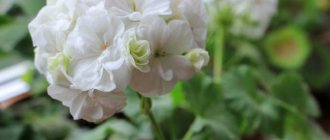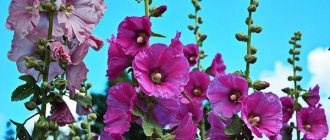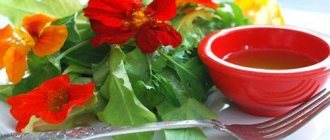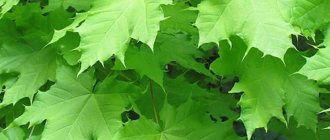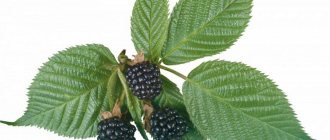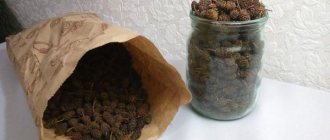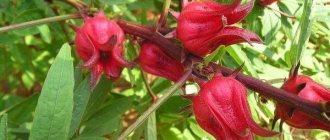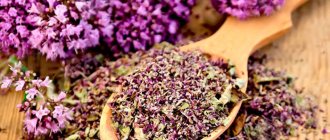Geranium is a perennial herbaceous plant. It is absolutely unpretentious and can be grown at home. Almost all types of this plant, both wild and indoor, have beneficial properties.
Geranium is considered a very ancient plant. It has a rich geographical history, so it has several names. Its second name is pelargonium. South Africa is considered the birthplace of the flower. At the end of the 17th century, it came to the European continent as an ornamental plant. In Russia, homemade pelargonium began to be used for medicinal purposes only in the mid-19th century. It was then that the healing abilities of this flower became known.
Today, geraniums decorate almost every windowsill. In addition to being used as decoration, this indoor plant is used in alternative medicine and cosmetology. A number of beneficial properties allow this miraculous plant to be used for the treatment and prevention of a number of diseases.
Chemical composition
The healing properties of geranium are due to its rich natural composition. The abundance of vitamins and beneficial microelements makes it suitable for use for medicinal purposes. In geranium, all parts of the plant have a healing effect - flowers, leaves and roots.
The chemical composition of the plant includes:
- vitamins - carotene, ascorbic acid (E),
- macro- and microelements - nickel, zinc, manganese, iron, copper;
- flavonoids;
- tannins and mucous substances;
- essential oils;
- phytoncides;
- alkaloids;
- pectins;
- fructose and glucose.
The composition of geranium roots is rich in phenols, and the upper part of the green part is rich in sucrose, starch, phenolic compounds and hemicellulose. The leaves contain flavonoids, pigments, essential oils, vitamins and phenolcarboxylic acids.
Using the beneficial properties of geranium in everyday life
Fragrant geranium is grown in residential and office buildings for decorative purposes. It has a light and pleasant aroma that spreads throughout the room.
Indoor plants improve the functioning of the nervous system and eliminate overexcitation. If they are in the bedroom, a person falls asleep better and faster. Migraines and headaches go away.
Garden species help control insect pests and weeds. Nearby plants become stronger and less susceptible to diseases.
Medicinal properties
Geranium has amazing properties. This flower has a complex effect on the body, which has a beneficial effect on the general condition of a person.
Among the medicinal properties are:
- antiseptic;
- bactericidal;
- pain reliever;
- wound healing;
- anti-inflammatory;
- antivirus;
- hemostatic;
- decongestant;
- diuretic;
- antidiabetic;
- anticancer effect.
Due to its antibacterial and antiseptic properties, geranium can be used to treat infectious and viral diseases.
Decoctions and infusions based on geranium can strengthen the body's protective functions, developing resistance to harmful bacteria, fungi and viruses.
The flower kills pathogenic microflora, including staphylococci and other bacteria. Due to the abundance of healing properties, the plant can be recommended to be taken for various diseases in the form of decoctions, oils and tea.
What are the benefits of geranium oil?
Geranium essential oil has absorbed the best properties of this flower. For example, the presence of natural elements such as phytoestrogens allows the use of an essential product for the treatment of certain female diseases. It helps normalize hormonal levels, helps with infertility, and also regulates the menstrual cycle.
Among the medicinal properties of geranium oil are:
- elimination of swelling;
- improving blood circulation and lymph outflow;
- eliminating dry skin;
- acceleration of regeneration of damaged tissues;
- relieving irritation and inflammatory reactions on the skin;
- decreased sebum production;
- preventing the appearance of dandruff and hair fragility, as well as stimulating hair growth.
The oil can be used both externally and internally. The oil is also added to baths, aroma lamps and used for massage treatments.
Geranium oil is an excellent remedy for improving your psycho-emotional state. It is recommended for use during periods of neurosis, depression, as well as mental and physical exhaustion.
Geranium oil is also used for cold and hot inhalations. It perfectly eliminates inflammation in the nose, throat and ears. It also helps with toothache and headaches.
Medicinal geranium and its beneficial properties
Geranium, or cranebird, is a genus of the Geraniaceae family. In total, more than 400 species of herbs and shrubs are known, scattered throughout the world, as well as in the tropical zone - on the mountains. Wikipedia
This flower is considered magical. Since ancient times, magicians, sorcerers, and healers attributed to it special protective magical properties that could ward off trouble, drive away evil spirits, cleanse the house of negativity, protect against the evil eye, and the envy of household members.
Interesting facts about geranium:
- History says that this flower has Greek roots. Translated, its name means “stork.” This flower was brought out in the form to which we are all accustomed by the English breeder George Tradescan.
- His most important achievement was a variety of royal geranium, which, according to legend, cured the king of insomnia.
- This beautiful flower was loved by everyone without exception. The ladies of the court willingly decorated their dresses and hats with it. Men placed flower leaves behind their sleeves for scent.
- In everyday life, geranium leaves began to be used against fleas, lice, and bedbugs.
Court doctors prepared ointments, tinctures, and balms based on the leaves of the flower and the juice from the leaves, which treated burns, wounds, abrasions, inflammation of the skin, suppuration, and ulcers that did not heal for a long time.
Application
Geranium has found wide application in various fields. The abundance of beneficial properties has made it possible to use this plant in the following industries:
- in cosmetology,
- alternative medicine,
- pharmacology,
- aromatherapy,
- perfume industry,
- cooking.
In cooking, fragrant geranium is used as a spice. Most often it is used to give baked goods and dessert dishes a pleasant and original aroma. Dried leaves are combined with the scents of rose, lemon or mint.
In the cosmetology industry, geranium is used in the production of various skin and hair care products. Geranium extract is used in sports nutrition.
Based on this, special preparations are produced to increase concentration and endurance during training.
The perfume industry uses rose geranium oil to create various fragrances. The geranium note is present in the scents of such brands as Giorgio Armani, Trussardi, Salvatore Ferragamo, Prada, Montale, Roberto Cavalli, Hugo Boss, Gianni Versace, etc.
Traditional medicine is replete with various recipes using home and meadow geraniums. Homemade flowers are used to treat and prevent a number of diseases. Let's look at what folk recipes based on it exist below.
Contraindications and precautions
It is immediately worth noting that many pharmaceutical medicines are produced from geranium, mainly based on essential oils; these can be ointments, extracts, creams, lotions, which can also often be found on the shelves of perfume stores.
Geranium, in comparison with other healing plants, such as ficus, golden mustache, Kalanchoe and many others, has certain contraindications that must be adhered to in use.
Geranium juice is poisonous and should never be taken internally, but for external use and application the juice is harmless, with the exception of rare allergic reactions.
Attention: The presented material is not a direct recommendation for treatment with the plant. Before using any of the medicinal recipes and methods described on the site, be sure to consult your doctor!
ethnoscience
Alternative medicine has revealed the beneficial properties of geranium for a long time. The plant was used as an external and internal remedy to treat certain diseases.
Traditional recipes with geranium help with:
- diseases of the ENT organs;
- osteochondrosis;
- gastrointestinal disorders;
- cardiovascular diseases;
- respiratory viral diseases;
- diseases of the nervous system;
- internal bleeding;
- diseases of the genitourinary system;
- gout;
- toothache;
- skin diseases, etc.
To this day, this amazing flower is used to prepare medicinal raw materials, and it is also simply useful to keep the plant in the house. For example, for insomnia and sleep disorders, it is recommended to place a flowerpot with a plant in the bedroom. Leave it in the room until sleep returns to normal.
Geranium juice and oil
To eliminate the symptoms of a runny nose, you will need juice from geranium leaves. Grind the fresh leaves and squeeze the juice out of them using gauze. Place the resulting juice in each nostril. We perform this therapy 3-54 times a day. This remedy helps to cope with nasal congestion and quickly get rid of a runny nose.
To eliminate internal bleeding, you need to grind fresh leaves of fragrant geranium and squeeze the juice out of them. Throughout the day you need to drink 30 drops of juice every two hours.
For nosebleeds, squeeze the juice from fresh leaves of the plant and dip a cotton swab into it. We insert the tampon into the nasal sinuses and take it out after half an hour.
For depression and headaches, it is recommended to use cold inhalations, that is, slowly inhale geranium essential oil. This method will also relieve fatigue and eliminate signs of apathy.
Infusions and decoctions
Cough, sore throat, tuberculosis: take 20 g of crushed meadow geranium leaves and pour a glass of boiling water over them. Cover the container with a lid and leave to infuse for 8 hours. Strain the prepared broth and gargle with it 3-4 times a day.
You can make a remedy from geranium to treat eczema. A small amount of fresh leaves must be crushed and poured with 250 ml of hot water. Place the container with the raw materials in a water bath and cook over low heat for 5-10 minutes. Allow the broth to cool on its own, then strain it. The prepared decoction must be used in the form of lotions and applied to the affected areas. This procedure must be done 2-3 times a day.
with angina attacks . For it, take five tablespoons of crushed dry leaves and pour one liter of boiling water over them. Cover the container with a lid and let it brew for two hours. Next, filter and use 100 ml of infusion when unpleasant symptoms occur.
For conjunctivitis: take 1 tbsp. l. crushed leaves of the plant and pour them with one glass of boiling water. Let it brew, then strain. We wash the eyes with the resulting decoction. We repeat this procedure 2-3 times a day.
For rectal cancer, a recipe for a special decoction based on geranium, Art. l. meadow pelargonium, 1 tsp. water pepper and 1 tsp. viburnum flowers. Prepare the mixture according to the recipe:
- Grind all the ingredients and pour in a liter of boiling water.
- Cover the container with a lid and let it brew for 15-20 minutes.
- After this, filter the infusion and add 1 tsp to it. tinctures of burnet herb.
- Mix the product and pour it into the rectum using a baby bulb (after the enema).
The procedure must be done once a day before bedtime. Important: cancer treatment cannot replace taking anticancer drugs and chemotherapy, if prescribed.
A decoction of the leaves of the plant will also help with hemorrhoids You need to pour 50 g of crushed geranium leaves into 250 ml. Boil in a water bath for 15 minutes, then filter. Apply gauze soaked in the broth to the hemorrhoids for 5 minutes. This therapy must be carried out twice a day.
For constipation, it is recommended to drink 100 ml of infusion twice a day. The infusion is prepared according to the classic recipe: 20 g of raw material is poured into 250 ml of boiling water.
There is also a special infusion after chemotherapy. To prepare it you will need a special variety of plant - Robert's geranium. The decoction is prepared as follows:
- Take one spoonful of the plant (namely Robert's geranium).
- Brew in a glass of boiling water.
- Let it brew for 30-40 minutes.
- We drink the prepared infusion throughout the day in an amount of 200 ml (take small sips).
- The course of therapy is two months.
This medicinal infusion is recommended for use by people who have undergone chemotherapy. The drink removes toxic substances and radionuclides from the body, and also promotes rapid recovery.
Geranium contains some beneficial compounds that inhibit the growth of cancer cells.
For cancer, the following recipe is useful: pour 1 tbsp. l. dried meadow geranium with a glass of cold boiled water. Let it sit overnight. We take the finished infusion in small doses throughout the day. The course of treatment is two months.
In case of kidney stone disease, pour 300 ml of water into an enamel container. When the water boils, pour 15 g of dried blood-red geranium into the pan. Then boil it over low heat for 7-10 minutes. After this, cool and strain. We take a medicinal decoction of 2 tbsp. l. five times a day. The decoction helps dissolve the stones.
Geranium leaves and roots
Geranium leaves can be used as a cold remedy. Take freshly picked geranium leaves and wrap them around your big toes. Wrap a bandage around the top and put on socks. It is recommended to carry out the procedure at night.
If you have high blood pressure, you need to tear off the sheet and apply it to your wrist, securing it with a pharmaceutical bandage. After half an hour, remove.
For epilepsy attacks, you will need the root of the plant. It should also be prepared for use in a certain way:
- It is crushed and 1 tbsp. l of the resulting raw material is poured with 250-300 ml of hot water.
- The container is placed in a water bath.
- Boil over low heat for 10 minutes.
- The broth is filtered.
- Use 2 tbsp. l. 2-3 times a day.
To eliminate ear pain , a freshly picked geranium leaf should be lightly kneaded and placed in the ear canal. This method will reduce pain and relieve inflammation.
To relieve toothache, chew a geranium leaf a little and apply it to a sore tooth or sore gum for 20 minutes.
What ailments and diseases does pelargonium treat?
Inflammatory diseases of the nasopharynx (colds, flu), accompanied by a runny nose, cough, sore throat, shooting in the ear.
Rubbing a geranium leaf crushed between your fingers on the wings of the nose and bridge of the nose will help relieve a runny nose. You can twist the leaf, crush it and insert it into each nostril in the form of a wick. You can squeeze out a little juice and instill 2 drops several times a day. Geranium will relieve swelling and nasal congestion and facilitate nasal breathing.
What else does geranium treat? For initial pain in the ear, both children and adults can knead the leaf, roll it into a tube and insert it into the auricle at night. Of course, this does not mean that you will not need a doctor. However, it is quite possible that geranium will prevent the progression of inflammation and you will wake up in the morning with a healthy ear.
Inhalations will help with cough. You can boil a couple of potatoes in their skins, mash them and add 2-4 drops of essential geranium oil. Breathe over the steam, covered with a towel for 10-12 minutes, repeating the procedure for 5-7-10 days.
According to another recipe, you need to take a mixture of dry anti-inflammatory herbs: chamomile, thyme and coltsfoot (two tablespoons), add it to 1 liter of water. When the mixture boils, remove from heat and add a spoonful of soda and add a few drops of geranium oil . Then also breathe over the steam.
Well, for a sore throat, gargling with diluted geranium juice and a teaspoon of honey is good.
Cosmetology
Fragrant geranium has found wide application in cosmetology. The plant extract is included in some cosmetic products. Special masks for hair skin are prepared at home.
Geranium has amazing properties:
- strengthens the hair structure and prevents hair loss;
- rejuvenates the skin and saturates it with beneficial compounds;
- improves skin tone and improves its color;
- reduces sebum production, eliminates acne and skin rashes;
- eliminates the peeling process, etc.
Fragrant geranium is used to treat acne, purulent skin diseases, inflammatory reactions and rashes. Both geranium itself and its oil are used for cosmetic purposes.
Geranium oil has an antioxidant, regenerating and anti-inflammatory effect and is used to treat eczema, wounds, burns and even frostbite.
To prepare a refreshing toner for dry and mature skin you will need 1 tbsp. l. vodka, 1 glass of flower water and 2 tbsp. l. medicinal chamomile, drops of rose essential oil and 4 drops of geranium oil. Mix all ingredients and pour into an airtight container. We wipe our face with the prepared tonic every morning and evening.
Geranium is also used to make a nourishing mask for normal skin. This is done in the following sequence:
- Beat the egg white.
- Pour it into the container.
- Add 2 tbsp. l. white clay.
- Add a few drops of cornflower blue water and geranium essential oil.
- Mix the ingredients until smooth.
- Apply to skin for 15 minutes. Then wash it off.
The anti-inflammatory mask is prepared as follows. Mix two drops each of geranium, lavender, cajuput and cedar oil. Apply the resulting consistency to problem areas. After 20 minutes, blot the unabsorbed oil with a paper napkin. For 40 minutes we try to avoid direct sunlight on the skin.
for flaky skin . Mix 2 tbsp in a glass container. l avocado oil, 3 drops of geranium extract and 4 drops of juniper extract. Mix all ingredients and heat slightly in a water bath (about 36 degrees). Next, soak the cotton wool in an oil consistency and apply it to the face. After 15 minutes, remove the cotton wool and wash.
To prepare a facial scrub you will need:
- 50 g moisturizing soap,
- half a glass of oatmeal,
- 50 g almonds, crushed in a coffee grinder,
- a glass of crushed fragrant geranium leaves.
Grate the soap and mix it with the rest of the ingredients. Bring the mixture to a homogeneous consistency. Place the prepared mixture on gauze, connect the ends and tie them in a knot, forming a bag. Lightly moisten the resulting lump in water and massage the face with it for three minutes. Then rinse your face.
Cosmetic anti-wrinkle ice with the addition of geranium leaves is easy to prepare at home. We chop the leaves and squeeze the juice out of them using gauze. Mix the resulting juice with water in equal proportions. Pour the solution into ice cube trays. We place them in the freezer. We wipe our face with cosmetic ice in the morning and evening.
cleanses your face well . Take five dry leaves of meadow pelargonium and pour a liter of boiling water over them. Let it brew for 3-4 minutes. Pour the broth into a bowl, bend slightly over it and cover with a towel. Keep your face above the steam for about 10 minutes. Then we wipe it with cosmetic ice so that the pores close.
Methods of using decoctions, infusions and tinctures of geranium
You need to remember that pure geranium juice is never used internally, as it contains a toxic substance.
Freshly squeezed juice can only be used as a hemostatic agent: for hemorrhoids, nosebleeds and uterine bleeding. Instilling juice into the eyes to prevent the development of cataracts is only possible after consultation with an ophthalmologist.
Prepare decoctions, infusions and alcohol tinctures for home treatment.
How to prepare a decoction of fresh or dried leaves . Roots can also be used. Take a tablespoon of raw materials (a tablespoon) and bring a glass of water with leaves to a boil. Do not boil for a long time - a minute is enough. Insist also for a short time - up to half an hour.
But if you used roots as raw materials, leave for up to 1.5 hours. Before use, the composition must be strained. Then drink during meals (breakfast, lunch and dinner).
The decoction is good for treating increased nervous excitability and restless sleep. Give it for urolithiasis, a tendency to diarrhea, and hypertension.
Experienced herbalists claim that tea made from pelargonium flowers can promote pregnancy in case of infertility. Spouses should drink tea twice a day. Throw a pinch of dried flowers into boiling water and wait 15 minutes.
How to make a cold infusion - pick 10-15 geranium leaves and cut into pieces. Place in a glass of boiled water, adding a spoonful of honey, for 8 hours. Use as an eye wash for blepharitis and as a gargle for sore throat.
How to prepare an alcohol tincture - chop fresh leaves, mix 2 large spoons with half a glass of vodka or alcohol, then leave for a whole week. Then take half a teaspoon, diluted with water twice a day. Indications are the same as for the decoction.
What does geranium treat? It is believed that hypothyroidism can be cured with geranium tincture in alcohol. Fill a 1-liter glass jar with mashed fresh leaves and add half a liter of vodka. Keep in the dark for a month, shaking occasionally. Then squeeze out the leaves and drink twice a tablespoon before meals. Without interruption, repeat the treatment again.
Contraindications
Despite the abundance of beneficial properties, indoor and meadow geraniums have a number of contraindications. Failure to follow the rules of administration can cause serious harm to the body in the form of various side effects.
Main contraindications:
- Pregnancy and lactation period.
- Stomach ulcer;
- Intestinal atony;
- Tendency to thrombophlebitis;
- Thrombosis and the presence of other circulatory pathologies;
- Reduced stomach acidity;
- Chronic gastritis;
- Constipation;
- Individual intolerance to components.
- Tendency to allergic reactions.
Internal use of medications based on this plant is prohibited for children under 15 years of age, as well as for elderly people.
Meadow geranium indications and contraindications
Folk medicines with meadow geranium are used:
- for inflammatory diseases of the ENT organs;
- for respiratory infections;
- in the treatment of inflammation in the oral cavity;
- for chronic otitis media;
- with high blood pressure;
- with chronic cystitis;
- for hemorrhoids.
Products containing meadow geranium should be taken with caution:
- for acute inflammation of the kidneys and bladder;
- during pregnancy, lactation;
- with coronary heart disease;
- with low blood pressure;
- with a tendency to allergies.
